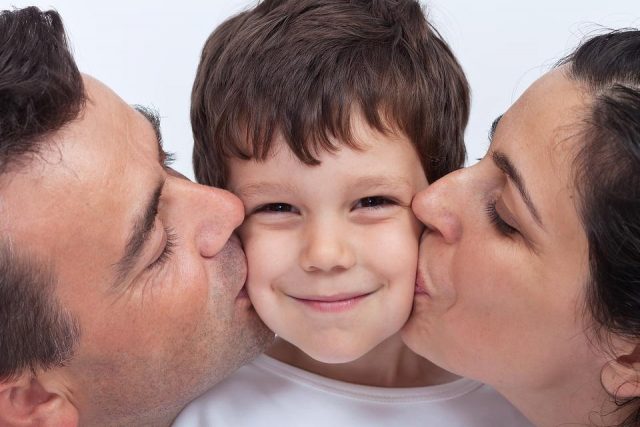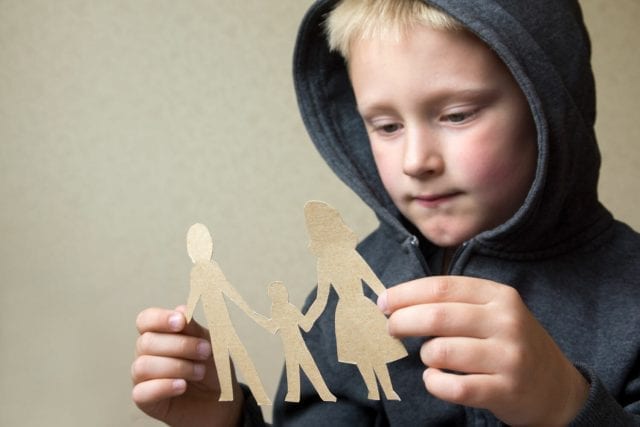
Nowadays, the separation into family roles of “homemaker” and “breadwinner” seems increasingly irrelevant and out-of-date. This conception fades away little by little in various countries od the world, and especially in the U.S. Along with it, favoring one of the spouses as a custodian of their common kids after a divorce just based on gender seems unfair and intolerant as well. Both spouses usually are capable of raising a child as well as to earn money or do both at the same time; at least it does not depend on gender. Therefore, the current standard of how the custody issue is usually resolved in the US treats the child as a subject of law and refers to the child’s best interest. Presumption of the same name is an official line of how the courts must act deciding the custody of a child in a divorce lawsuit, though different US states still may understand out of children’s interests in different ways. The main principle, nevertheless, is common to all jurisdictions – this custody system is gender-neutral. The courts must take into account only that essential factors which can really affect the child’s wellbeing and determine whether the parent can be qualified as a decent custodian.
Custody options, Sharing is the main trend

According to Ourfamilywizard, there are two primary types of custody – legal and physical custody, and each of them may be awarded to both parents (shared, joint custody) or just to one of them (sole custody).
While physical custody determines the placement of the child, meaning which parent should provide a home to the child and take responsibility for everyday care and provision, legal custody determines the decision-making authority of each parent. Legal custody gives the right to make the most important decisions which influence the child’s life (issues related to healthcare, safety, education, religion, traveling, and so on.)
So, parents may share both physical or legal custody or both of these type, or sole physical may be awarded along with joint legal custody, or both physical and legal custody can be awarded to the one party
Shared custody, Increasing popularity
Family law of each state uses different combinations of possible custody arrangements to form their vision of the best interest of the child. Nowadays, shared parenting is one of the most common options.

The point is that keeping frequent and close contact with both parents is considered to help the child to cope with emotional pain after a divorce and avoid psychological trauma. In the majority of states, the family law encourages uncontested and no-fault divorces mainly for the same reason – for the sake of the children.
As a result, a number of the US states have already adopted a presumption of joint custody. Among them are Florida, Idaho, Iowa, Louisiana, Minnesota, New Hampshire, New Mexico, Texas, Utah, Wisconsin, and The District of Columbia. In Alabama, California, Connecticut, Mississippi, and Nevada joint custody presumption takes effect when both parents agreed. In the rest of the states the joint custody is available as well, but without a presumption, meaning that the spouses should express their will and prove that they can handle with shared custody (divorce mediation or parenting classes may be ordered by the court to prepare the ex-spouses for the co-parenting). Only in a couple of states shared parenting is considered not to be in the child’s best interest unless proven otherwise.
Pros and challenges of joint custody
Shared custody seems to be perfect if the spouses terminate their marriage amicably, but if the spouses have a lot of claims to each other shared parenting may turn out to be a nightmare. Contact with both parents is good for the child in theory, but every case is unique so you should reflect this custody option in advance. No one except you knows whether the shared parenting is right for your child or it just places your kid in the crossfire. Evaluate your capacity. According to Online Divorce, if your divorce is quite peaceful and you and your ex-partner are really ready to take this responsibility you can enjoy the following benefits of shared parenting:

1. Shared custody helps to discipline your kid.
The team approach helps the upbringing process, and that is a fact. If you collaborate with your ex and support one another upon creating the rules, it may help a lot when the kid tests their boundaries in new ways.
BUT! It should never be allowed that what is encouraged by one parent would be prohibited by the other and vice versa. The child feels this attempt at manipulation and begins to use it to their advantage, to manipulate you back. In the end, this weakens the authority of both parents.
2. Shared parenting makes your daily routine more flexible.
After a divorce, your life is not over. Surely, children come first, but anyway, you should start a new page of your professional and personal life over time. It is very convenient to know that you free to get an education, attend job interviews, devote time to hobbies or date knowing exactly when your kids will be with the other parent. You would not have to hire a babysitter or get home at a particular time blaming yourself that the kid spends more time with a stranger. There are a lot of things which are essential for you as an individual, and you should not sacrifice everything for children. In the end, it is not good for them either. You can raise happy children only by being a happy parent.

BUT! Shared parenting implies cooperation, so you should not abuse of your ex-spouse’s support as well as be ready to help in response. Wherein, you do not need to know any details, you both should respect each other’s private life and time.
3. A child feels love and support of both parents.
A kid needs to understand that they do not lose any parent because of a divorce. It is essential to convey the kid message that both parents love them as before but the marriage just did not work, and no one is to blame. And it is much easier to arrange when both parents participate in the child’s life without any compulsion.
BUT! Do not put the child in the middle of a conflict. Permanent communication with your ex can be challenging for you, but it is not the child’s fault. Don’t let your child feel guilty because of the time spent with another parent, do not criticize the former spouse with the child, and also do not force the child to compare the time spent with each of you.
4. Shared parenting is better for a child’s future.
It may be useful for a child to have contact with both father and mother to have an adequate vision of the image of a man and a woman to build their own harmonious relationship in the future. Do not blame yourself for a divorce – for your child, this is definitely better than growing up in an unhappy marriage – but do not deprive your child of communication with both parents. “Weekend dad” may give expensive gifts and arrange entertainment, but such a type of parent-child relationship distorts the picture of how the relationship with people are built in real life.

In general, shared parenting is an excellent way of custody arrangement. However, both parents should take a responsible approach, understanding that frequent communication after a divorce would not be easy for them. If they are ready to negotiate they can create their own arrangement depending on what would be convenient at their particular case. Even joint physical custody does not assume sharing parental time strictly in half; the point is that the shares should be significant. Think about all the options in advance, but undoubtedly, co-parenting after a divorce may bring a lot of benefits for your child if you are wise and patient enough.








